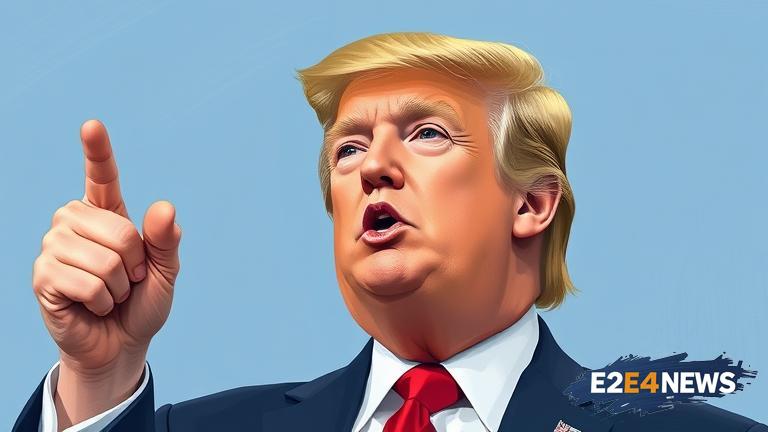The United States has been at the forefront of the global tech industry, with companies like Google, Facebook, and Amazon dominating the digital landscape. However, the rise of digital taxes in various countries has posed a significant threat to these American tech giants. In response, US President Donald Trump has vowed to retaliate against countries that impose such taxes, which he claims unfairly target US companies. The move has sparked a global trade dispute, with many nations defending their right to impose taxes on digital services. The digital tax, also known as the ‘Google tax,’ is a levy imposed on tech companies that generate revenue from digital services, such as online advertising and e-commerce. The tax is designed to ensure that these companies contribute to the public purse in the countries where they operate. However, the US has long argued that such taxes are discriminatory and unfairly target American companies. Trump’s threat of retaliation has been met with concern from many countries, which argue that the digital tax is a necessary measure to ensure fair competition and generate revenue. The European Union, in particular, has been a strong proponent of the digital tax, with many member states imposing their own versions of the levy. The EU has argued that the tax is necessary to prevent tech companies from avoiding taxes by shifting their profits to low-tax jurisdictions. Despite the controversy, many countries are pushing ahead with their digital tax plans, with some arguing that the US is trying to bully them into abandoning their tax policies. The dispute has significant implications for the global tech industry, with many companies facing the prospect of increased taxes and regulatory scrutiny. The US has already taken action against several countries, including France, which imposed a 3% digital tax on tech companies last year. The US responded by imposing tariffs on French goods, sparking a trade war between the two nations. The dispute has also drawn in other countries, including the UK, which has announced plans to introduce its own digital tax. The move has been met with opposition from the US, which has threatened to retaliate against the UK if it proceeds with the tax. The global trade dispute has significant implications for the future of the tech industry, with many companies facing uncertainty and regulatory risk. As the dispute continues to escalate, it remains to be seen how the situation will unfold and what the ultimate outcome will be. The US has long been a champion of free trade and has argued that the digital tax is a barrier to trade and investment. However, many countries argue that the tax is necessary to ensure fair competition and generate revenue. The dispute has also raised questions about the role of tech companies in society and their responsibility to contribute to the public purse. As the situation continues to evolve, it is likely that we will see further developments and potentially even more countries imposing digital taxes on tech companies. The US will likely continue to push back against these taxes, arguing that they are unfair and discriminatory. The outcome of the dispute will have significant implications for the global tech industry and the future of international trade. In conclusion, the dispute over digital taxes has sparked a global trade dispute, with the US threatening to retaliate against countries that impose such taxes. The situation remains uncertain, with many companies facing regulatory risk and uncertainty. As the situation continues to unfold, it is likely that we will see further developments and potentially even more countries imposing digital taxes on tech companies.
